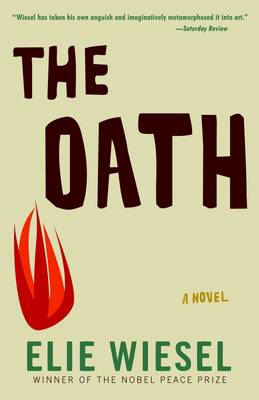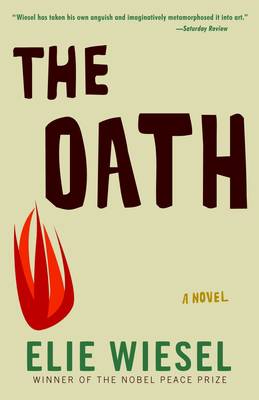
- Afhalen na 1 uur in een winkel met voorraad
- Gratis thuislevering in België vanaf € 30
- Ruim aanbod met 7 miljoen producten
- Afhalen na 1 uur in een winkel met voorraad
- Gratis thuislevering in België vanaf € 30
- Ruim aanbod met 7 miljoen producten
Zoeken
Omschrijving
When a Christian boy disappears in a fictional Eastern European town in the 1920s, the local Jews are quickly accused of ritual murder. There is tension in the air and a pogrom threatens to erupt. Suddenly, an extraordinary man--Moshe the dreamer, a madman and mystic--steps forward and confesses to a crime he did not commit, in a vain attempt to save his people from certain death. The community gathers to hear his last words--a plea for silence--and everyone present takes an oath: whoever survives the impending tragedy must never speak of the town's last days and nights of terror. For fifty years the sole survivor keeps his oath--until he meets a man whose life depends on hearing the story, and one man's loyalty to the dead confronts head-on another's reason to go on living. One of Wiesel's strongest early novels, this timeless parable about the Jews and their enemies, about hate, family, friendship, and silence, is as powerful, haunting, and significant as it was when first published in 1973.
Specificaties
Betrokkenen
- Auteur(s):
- Uitgeverij:
Inhoud
- Aantal bladzijden:
- 296
- Taal:
- Engels
Eigenschappen
- Productcode (EAN):
- 9780805208085
- Verschijningsdatum:
- 12/05/1986
- Uitvoering:
- Paperback
- Formaat:
- Trade paperback (VS)
- Afmetingen:
- 139 mm x 217 mm
- Gewicht:
- 371 g

Alleen bij Standaard Boekhandel
+ 36 punten op je klantenkaart van Standaard Boekhandel
Beoordelingen
We publiceren alleen reviews die voldoen aan de voorwaarden voor reviews. Bekijk onze voorwaarden voor reviews.











